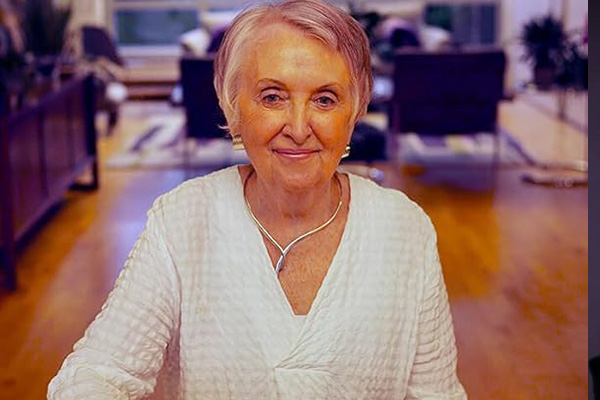The Evolving Edge of Coaching, A Conversation with Jenny Rogers
 What does it take to thrive as a coach in today’s world of complexity, ambiguity, and rapid change? To engage that very question, we were delighted to host a rich and thought-provoking conversation with Jenny Rogers, acclaimed executive coach, award-winning author, and one of the earliest professional coaches in the UK. Moderated by Michelle Albaugh, associate director of coaching at MSLOC (OLCC & ELOC), the event drew together our vibrant coaching community and beyond, to explore the newly released 5th edition of Coaching Skills: The Definitive Guide to Being a Coach, a book often described by coaches as an indispensable guide to the profession.
What does it take to thrive as a coach in today’s world of complexity, ambiguity, and rapid change? To engage that very question, we were delighted to host a rich and thought-provoking conversation with Jenny Rogers, acclaimed executive coach, award-winning author, and one of the earliest professional coaches in the UK. Moderated by Michelle Albaugh, associate director of coaching at MSLOC (OLCC & ELOC), the event drew together our vibrant coaching community and beyond, to explore the newly released 5th edition of Coaching Skills: The Definitive Guide to Being a Coach, a book often described by coaches as an indispensable guide to the profession.
Why Update a Classic?
Jenny shared her candid reflections on what prompted this new edition. After revisiting her earlier work, she realized, “I began to feel a little bit embarrassed by how subtly out of date it felt in a lot of places, and that there were big gaps, things that I knew were obsessing coaches… like the diversity agenda, for instance.” She also highlighted her expanded focus on trauma-informed coaching, a topic that now spans three chapters thanks to her ongoing learning and collaboration with experts in the field.
From Transactional to Transformational
Rogers advocates for a shift from transactional coaching (i.e., coaching that is focused on immediate, surface-level issues) to transformational coaching (which is essential for deep, lasting change). This is where coach and client explore together the deeper patterns that shape behavior. Drawing on attachment theory and the concept of “little t trauma,” she emphasized that unmet childhood needs often echo into adulthood, shaping leadership styles and workplace dynamics.
When discussing trauma-informed coaching, Jenny suggests that coaches should start by asking themselves: “How has this shaped me? What was my own experience of attachment? Was I lucky enough to have a reasonably secure attachment experience, or did I experience insecure attachment in some way?
“If we want to do transformational work, we have to get away from the transactional area into the transformational area,” she explained.
Coaching vs. Therapy: Navigating the Line
Jenny was clear about the boundaries of coaching: “We’re not ever dealing with the traumatic experiences themselves. That is the task of a therapist.” Instead, coaches can help clients recognize how their past informs their present, always staying within ethical lines. As Michelle Albaugh, who facilitated the conversation, observed, “Just because something is therapeutic doesn’t mean it’s therapy,” a subtle but important distinction that often emerges in coaching practice.
The Power of Supervision
Jenny also spoke passionately about the value of supervision, describing it as being “like coach training at another level.” She encouraged coaches—especially those early in their careers—to seek out supervision or peer networks for support, reflection, and ethical guidance. Michelle echoed this, sharing how her own early experiences with group supervision were “extraordinarily enriching for seeing multiple perspectives.”
Coaching for Today’s Pressing Challenges
Looking ahead, Jenny pointed to urgent issues facing coaches: supporting young people as they launch their careers, navigating chronic uncertainty, and advancing genuine inclusion. She reminded us that the coach’s role remains consistent: “We ask the right questions. We listen. We’re not giving advice, but we are present for our clients.”
If you’re inspired to deepen your impact as a leader or coach, Northwestern’s coaching certificates – including the year-long, graduate-level Organizational and Leadership Coaching Certificate (OLCC) and the executive education format ELOC Level 1 Coaching Certificate program – offer rigorous, relationship-centered coach education rooted in the very principles Jenny champions.
Join us. Become the kind of coach who shapes not just careers, but lives.
Interested in the full conversation? Write to us at msloc@northwestern.edu for a recording, and visit msloc.northwestern.edu or eloc.northwestern.edu for program details and upcoming information sessions.